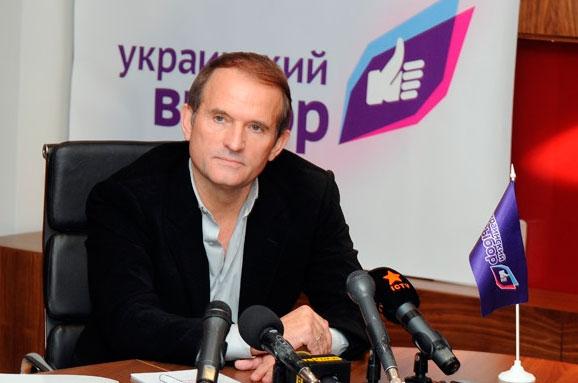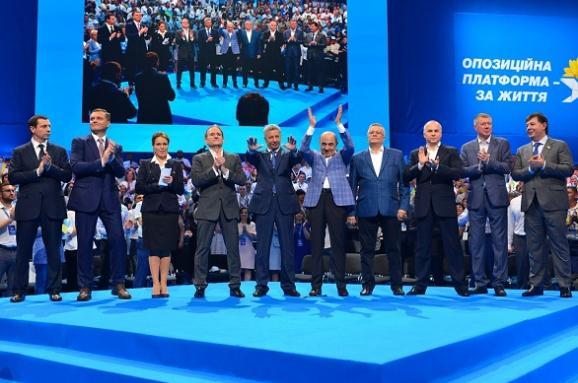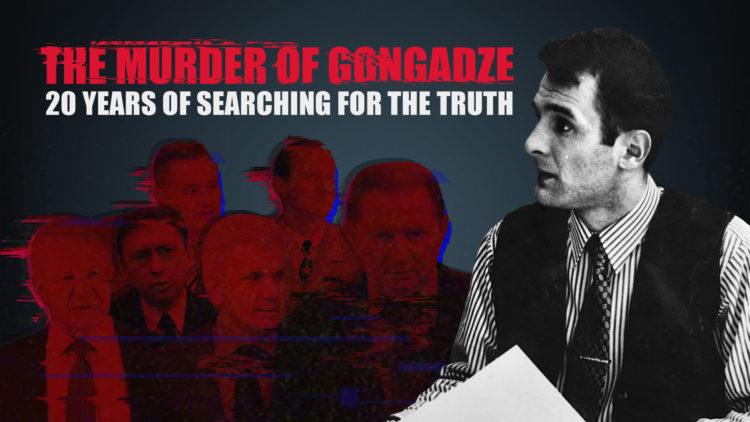The current furore concerns the national TV channel ZIK, which used to belong to the wife and two daughters of Petro Dymynsky, football functionary and businessman. On June 14 Taras Kosak, an MP from the Opposition Bloc (the successor to the runaway president Viktor Yanukovych’s Party of Regions with pro-Russian stance) became the sole owner of the channel. Kosak is campaigning to be elected to the new parliament with the Opposition Platform Za Zhyttia (For Life), another successor to the Party of Regions whose main influencer is Viktor Medvedchuk. Ukrainian media inextricably associates Kosak with Medvedchuk, as the MP belongs to Medvedchuk’s inner circle.
“Officially now the TV channel ZIK belongs to Medvedchuk and I am broadcasting the last issue of the weekly program Detali [Details] and going to look for a new job,” stated Roman Nedzelskyi, editor in chief of the news on ZIK.
The Babel online media outlet talked to some of the channel’s employees who said that 90% of journalists who are shown on screen during programs intend to leave. Vaktang Kipiani, an author of a historical program screened by the channel even called Medvedchuk an “enemy of Ukraine.”
After the Euromaidan Revolution, the majority of ex-Yanukovych allies remained somewhat in the shadows. Medvedchuk himself had in earlier times preferred to influence out of sight, gaining the reputation of being a grey cardinal. However, during recent years he has started to become more and more public, culminating in his election campaign.
But the story of his dubious image does not commence in the Donbas war, nor during the Euromaidan revolution; in fact not even during the Yanukovych presidency.
A cog in the Soviet machine

On the night of 3 to 4 November 1985, Ukrainian dissident Vasyl Stus died after spending five years in a Soviet labor camp in Perm region (today’s Russia). Stus wrote poems and prose, translated authors of world renown into Ukrainian, criticized the Soviet system for totalitarianism, cult of personality, and violation of human rights, and protested against the detention of other Ukrainian intellectuals. The official version of his death was heart failure. However, his relatives and friends said it was the Soviet system “mopping up”.
Stus was arrested on two separate occasions. He was accused of “anti-Soviet agitation and propaganda”. For the second time, in 1980, he was sentenced to 10 years in forced labor camps and 5 years of exile. In 1990, a Soviet court posthumously rehabilitated him.
In the latter case it was none other than Medvedchuk who defended Stus in court as a lawyer. However, according to witnesses of the event, at some point the dissident refused Medvedchuk’s services.
“When Stus met with the lawyer appointed for him, he already felt that Medvedchuk was a person of an aggressive Komsomol type, that he did not defend him, did not want to understand him, and in fact was not interested in his case. So Vasyl Stus rejected this lawyer,” according to Euhen Sverstiuk, Ukrainian philosopher, writer and another Soviet political prisoner.
However, rejecting Medvedchuk did not help, as he remained Stus’s lawyer. Researchers digging into the case later confirmed that in fact, Medvedchuk was not defending his client.
In May 2019, a book titled The Case of Vasyl Stus was published. It contains documents from the KGB archives, including protocols of the court hearings, searches, and interrogations, memories of colleagues, witnesses, and Stus’ letters from prison.
“Even in Soviet proceedings, a lawyer had relatively wide opportunities. However, Medvedchuk did not file any petition nor call on any witnesses. However, when the lawyer came to speak during the debates he said: ‘I consider the qualification of his actions as right,” Vakhtang Kipiani, who edited the book, told.
According to the journalist, Medvedchuk could not save Stus, as the decisions on dissidents were not made in a Kyiv court, but by the Moscow KGB. However, Medvedchuk could have gone down in history as an honest man, rather than choosing to serve the system.
Medvedchuk’s place in history should also have been reflected in a film devoted to the poet. The production of the film, which is scheduled for release in September 2019, was accompanied by controversy: the scene of the last court hearing and Medvedchuk’s recognition of the accusations was cut out. According to the director, it was not the only episode which was cut due to wishes from Stus’s relatives, long duration, and judicial nuances.
Medvedchuk in his turn called the story around the film an “American provocation” and said that his involvement in the poet’s fate was twisted.
When commenting on the case after the Soviet Union’s collapse, Medvedchuk said that under the circumstances he could not have acted differently.
The media has on numerous occasions ascribed him cooperation with the KGB, which Medvedchuk has denied.
Independent Ukraine politician

Medvedchuk entered politics in independent Ukraine in 1994 within the Social Democratic Party of Ukraine (since 1998 Social Democratic Party of Ukraine United). Under his rule in spring 2002, the party entered parliament. After the next elections where the party campaigned within the political alliance the Opposition Bloc Ne Tak! and lost, Medvedchuk resigned from the position of head of the Social Democratic Party of Ukraine United.
The period from 2002 to 2005 was arguably the most public period of Medvedchuk’s political career. During that time he headed the then president Leonid Kuchma’s administration. Subsequently, he has until recently rather influenced Ukrainian politics from the shadows.
Until now his main force in Ukraine was the organization Ukrayinskyi Vybir ("Ukrainian Choice"), which in fact is considered as being rather pro-Russian and anti-Ukrainian. The website of the organization does not even have a Ukrainian language version, it is only in Russian. According to its manifesto, Ukraine should move into an eastern direction, meaning integration with Russia, Belarus, and Kazakhstan within the Customs Union. After the de-facto war in Donbas started, the organization on numerous occasions called for the restoration of business relationships with Russia. The manifesto also promotes the introduction of Russian as the country’s second state language, along with dual citizenship.
In summer 2018 the organization joined the Opposition Platform Za Zhyttia ("For Life"). In May 2019, Medvedchuk was elected head of the party’s political council and strategic councils. Currently, the party ranks second, after President Zelenskyy's Servant of the People.
Recently, in an interview with BBC, Medvedchuk confirmed his negative attitude towards the majority of Ukrainians.
“I also perceive them negatively,” the politician answered the journalist’s comment that people perceive him negatively. “60% of our people consider Russia as an aggressor, I do not think so. Should I be among this 60 %? No, I’ll be among the other part,” concluded Medvedchuk.
Putin's number one friend in Ukraine
During the Euromaidan Revolution, protesters associated Medvedchuk with the attacks happening at the time. Afterward, Medvedchuk became the main voice of Vladimir Putin in Ukraine.
However, the two are related not only by politics. In 2004, Putin became a godfather to Medvedchuk’s daughter.
Since the end of 2014 Medvedchuk has been involved in the issue of hostage exchanges in the de-facto war which Russia initiated in Donbas. In fact Medvedchuk himself does not recognize Russia as an aggressor.
In February 2019, the Ukrainian Prosecutor General Office (GPO) opened criminal proceedings against Medvedchuk according to articles on state treason and encroachment upon the territorial integrity and inviolability of Ukraine. The case is related to Medvechuk’s statements on the need to create a so-called "Autonomous region of Donbas." The politician made the statements during the Opposition Platform’s congress at the end of January 2019.
The materials of the case were handed to the Security Service of Ukraine (SBU). Medvedchuk himself commented that his position on the peaceful resolution of the conflict fully complies with the Ukrainian legislation.
More than four months later the GPO applied to the SBU to accelerate the expertise.
Meanwhile, the politician has high chances of being elected to the next parliament.
The reaction of the media community
The media community in Ukraine regards the acquisition of the ZIK TV channel as a threat to national security.
The media movement Media For the Conscious Choice called on the National Council on TV and Radio Broadcasting, Security Services, the president and Ukraine’s authorities to act in this matter.
“We consider that concentration of a news resource in the hands of a particular pro-Russian political force will become in fact an instrument of influence, whose aim is to provide support for political forces affiliated with it during the elections. The more threatening fact is that these channels [ZIK, 112, and NewsOne] distribute Russian propaganda, which is the logical continuation of Viktor Mevedchuk’s personal stance who, despite Ukraine’s and the international community’s official position does not consider Russia as an aggressor,” says the statement.
Additionally, the statement refers to the monitoring of the media watchdog Detector Media. According to it, after the channels 112 and NewsOne fell under the control of Medvedchuk’s inner circle, they started to actively distribute manipulative messages and disinformation affirming the Kremlin agenda.
“Also these channels are actively involved in the campaign for the opposition platform Za Zhyttya, the representatives of this political force are the most invited guests on air, they even present programs,” the statement says, concluding that it is expected that the same should be expected now at the ZIK TV channel.
According to the Industrial Television Committee, in May all the three media outlets had around 3% TV viewing share among the city audience 18-54 age group. Compared to the market leaders, these figures are relatively low. But only at first glance.
The three channels only have political and news content, with no entertainment at all. According to Tetiana Popova, an expert in the field, 70% of top political talk shows are hosted by the three Medvedchuk-related channels. Also, the three broadcast 20% of the top news programs.
Popova summarizes that 45% of the top information programs of the country are broadcast by the holding, a pretty sizeable result taking into consideration the fact that 74% of people get the news primarily from TV.
Mykola Knyazhytskyi, an MP with a media background told liga.net that ZIK was not bought for the elections, but for long term plans for demoralizing the population and for additional hybrid threats within the country.
A person from Medvedchuk’s inner circle explained the media the other reasons of the recent acquisition. Among them, ZIK has influence in the western part of Ukraine, a politically active region which Medvedchuk wants to have an influence on. The second reason named by the source is that the politician cares about his image. In Western Ukraine, he is currently perceived as being nothing else than a “separatist” and a person whose godfather is Putin.
Some political experts would relate his return to the public area to the support of then-president Petro Poroshenko. The latter chose to build his presidential campaign on fears of Russia. Allegedly, in this script, Medvedchuk used to play the role of the personification of all the pro-Russian forces in Ukraine. This, conversely, would make Poroshenko look like the only alternative. But the presidential race took an unexpected turn, with the comedian Volodymyr Zelenskyy entering the stage and, eventually, winning.
Read also:
- “Savior of the nation”: how Poroshenko bets on fear of Russia in bid to get reelected
- In Ukraine, oligarchs set the election agenda using their TV





